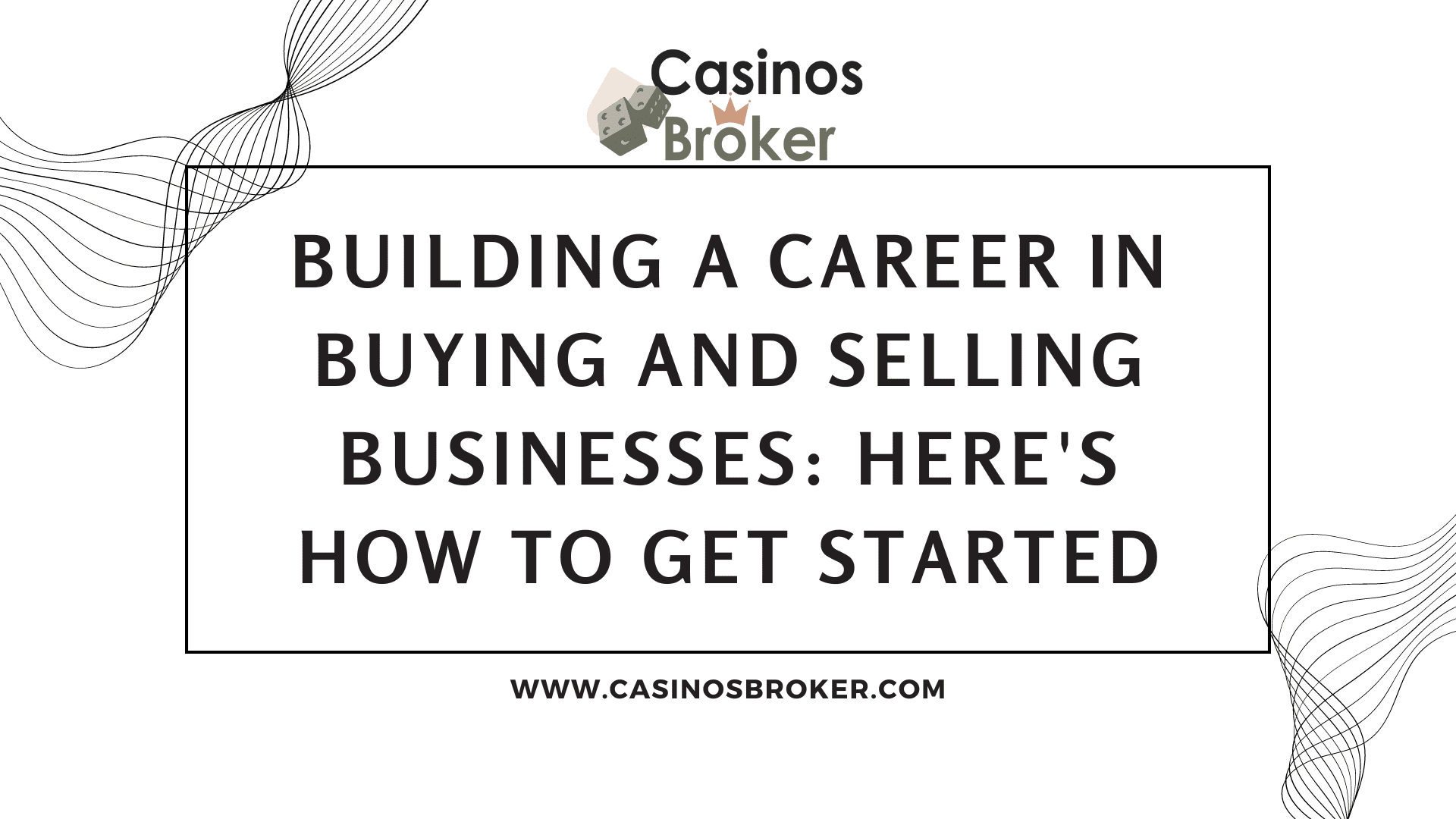Have you ever wondered how to turn buying and selling businesses into a successful career?
We’ve mentioned it before, and it bears repeating: one of the most effective paths to financial freedom is through business acquisitions and sales. Today, we’re going to show you how to get started on this journey.
If you’re interested in discussing your acquisition strategy in more detail, simply reply to this email, and we’ll arrange a time to chat.

Buying Businesses 101: 4 Simple Steps
- Do Your Research and Get Educated Begin by familiarizing yourself with the various types of businesses and the acquisition process. Explore books, attend seminars, and follow industry blogs. We’d be happy to guide you to specific resources—just respond to this email for recommendations.
- Set Clear Criteria Don’t buy just any business that piques your interest. Narrow down your options based on factors like industry, size, and location. Think about what you aim to achieve from the purchase and how involved you want to be in daily operations.
- Browse Online Business Marketplaces This is a great place to start exploring a variety of listings across industries and niches. While you might find something that fits your needs, remember that not every listing is a quality opportunity. Take the time to assess each one carefully, and consider consulting an M&A professional for guidance.
- Leverage Your Network Reach out to your contacts—they may know of businesses for sale. Although this approach might take time, it can sometimes uncover great opportunities. A referral from a trusted source often leads to smoother negotiations and a stronger rapport with the seller.
Selling Businesses 101: Start Planning Your Exit Early
- Prepare Your Business for Sale Ensure your business is always ready for a potential buyer. This includes documenting key processes, gathering important documents (like licenses, trademarks, patents, and financials), and organizing everything as if it’s an “owner’s manual.” Our advisors can help you with this preparation if needed.
- Get a Business Valuation A valuation provides insight into your business’s market worth and highlights its strengths and weaknesses. Even if you’re not selling immediately, this feedback can help you enhance your business’s value over time.
- Sign an Engagement Letter If you work with a business broker, you’ll likely need to sign an engagement letter outlining the terms of your partnership, including responsibilities and the exclusivity period. While selling on your own is an option, a professional broker can give you access to a wider pool of buyers and leverage their experience to negotiate the best deal.
- Market Your Business Create a comprehensive marketing package showcasing your business’s performance and future potential. This is key to attracting serious buyers. You can either handle this yourself or collaborate with an advisor to create a compelling package.
- List Your Business Once everything is ready, it’s time to list your business. Your broker will distribute the listing to qualified buyers and feature it on their platform. After all the groundwork, this step often feels like a welcome relief.
Key Takeaways:
- With the right education, resources, and guidance, you can build a career in buying and selling businesses.
- Define what you’re looking for in a business before you start your search. Take a look at what’s currently on the market to get a sense of your options (click below to view our listings).
- Selling for maximum value requires careful planning. While not mandatory, we highly recommend working with a professional business broker. Start with our free business valuation and consultation.
We’ll be back next week with more acquisition tips. In the meantime, check out our latest listings and content at the link below.
Check out our current listings!
We’d love to hear from you—are these insights useful?
Frequently Asked Questions (FAQ) on Business Acquisitions and Exits
1. Why is it important to “Set Clear Criteria” before looking at business listings?
Browsing without a plan can lead to “deal fatigue” or purchasing a business that doesn’t fit your lifestyle. By narrowing down your options based on specific factors—such as industry, geographical location, and desired level of daily involvement—you filter out noise. This disciplined approach ensures you only spend time evaluating opportunities that align with your strategic goals and operational capabilities.
2. Are online marketplaces the only way to find businesses for sale?
No, and relying solely on them can limit your options. While marketplaces are excellent for seeing a high volume of listings, the guide highlights the value of Leveraging Your Network. Reaching out to professional contacts can uncover “off-market” deals. These referral-based opportunities often result in smoother negotiations and better rapport with the seller because they come through a trusted source rather than a public forum.
3. What is the benefit of getting a valuation if I am not ready to sell yet?
A professional valuation is a diagnostic tool, not just a price tag. It highlights the business’s current market worth while simultaneously identifying its specific strengths and weaknesses. This feedback loop allows you to address operational gaps or profitability issues now, ultimately enhancing the business’s value for when you are finally ready to exit.
4. What is the purpose of an “Engagement Letter” when hiring a broker?
An engagement letter is the formal contract that defines the partnership between you and the M&A advisor. It outlines critical terms such as the broker’s responsibilities, the fee structure, and the exclusivity period. Signing this document is a strategic step that unlocks the broker’s full resources, granting you access to their private pool of qualified buyers and their expertise in negotiating the best possible deal.
5. Why should I document my business processes like an “Owner’s Manual”?
Buyers are looking for an asset, not a job. If a business relies entirely on the owner’s memory and personal intervention to function, it is considered high-risk and less valuable. By organizing key processes, licenses, and financials into a transferable “Owner’s Manual,” you demonstrate that the business is a turnkey operation that can continue to thrive under new leadership.





